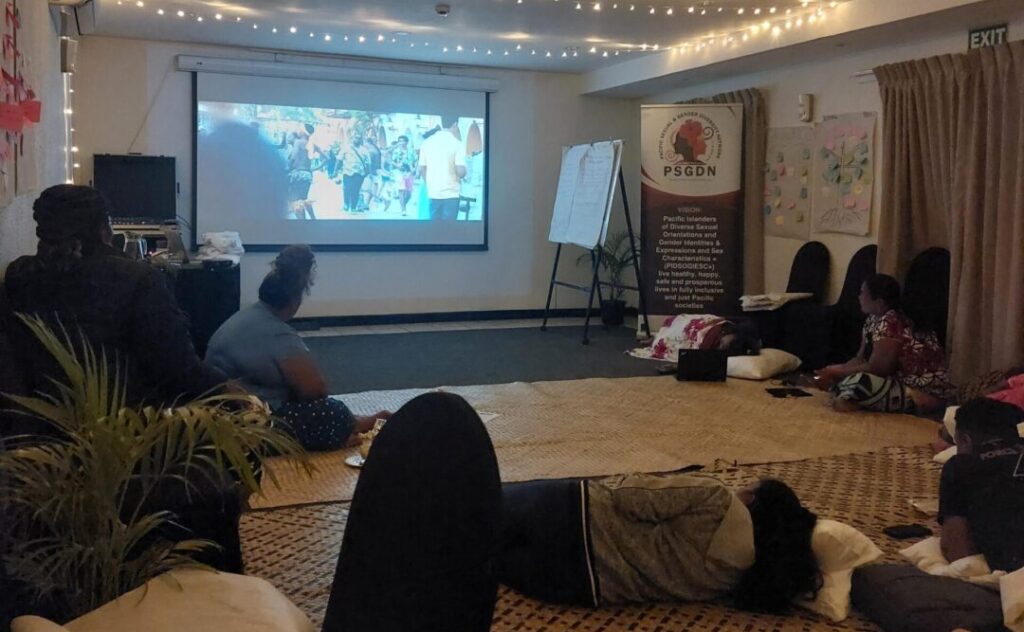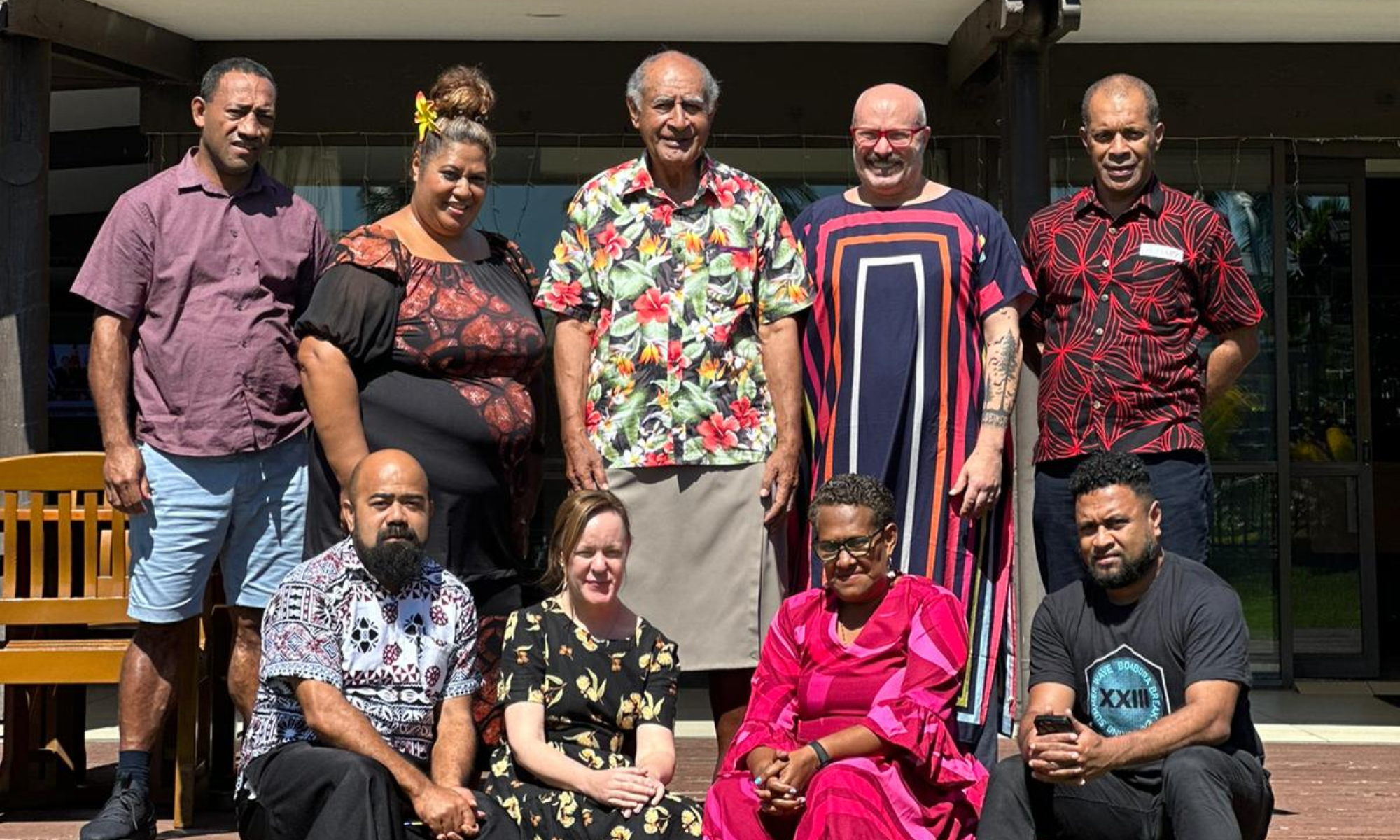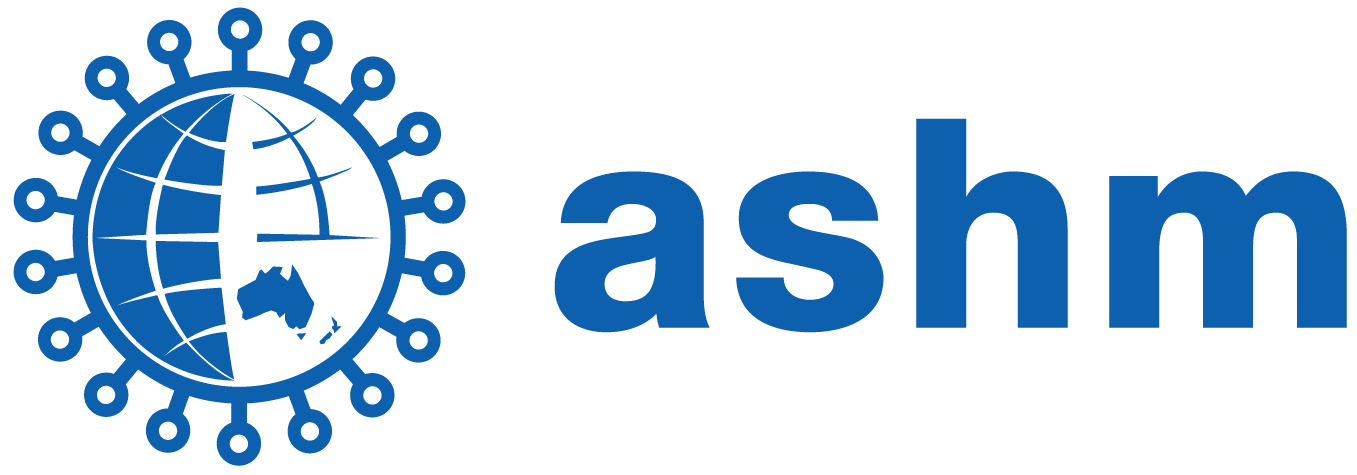ASHM and the Pacific Sexual and Gender Diversity Network (PSGDN), in collaboration with the Fiji Network for People Living with & Affected by HIV & AIDS (FJN+), brought together emerging peer mentors from across the Pacific for an educational and empathetic workshop in Fiji. The workshop is part of the Multi-Country Western Pacific Integrated HIV/TB Programme, managed by UNDP.
From 10 – 17 November 2023, ASHM and PSGDN collaborated with FJN+ to facilitate a workshop in Fiji for existing and emerging HIV peer mentors. The workshop brought together 11 people living with HIV from seven Pacific countries (the Federated States of Micronesia, Kiribati, the Republic of Marshall Islands, Palau, Tonga, Samoa, Vanuatu), as well as five FJN+ members from Fiji, to connect, reflect on, and plan their journeys as peer mentors.
Underpinning the workshop was the Pacific approach of ‘talanoa’ – an exchange of conversation between people to build greater empathy and understanding. Culturally safe practices and activities helped to create a shared sense of community and inclusivity, such as a kava circle and traditional welcome ceremony to kick off the workshop. Participants also bonded over activities such as movie nights featuring stories of allyship, mentorship, and activism from across the Pacific.

“To be honest [before arriving], I was actually scared, frightened, but then excited in a way…But when time went on, day by day, I realised everyone is really down to earth, I got to meet new people, I got to be myself and relax…we have this bond like we are brother and sister,” said one participant.*
"[It's] family. It doesn't feel like it. It is family."
- Workshop participant
Building an environment of trust and safety was paramount for the workshop, as people living with HIV often face societal and internalised stigma. The sharing of participants’ HIV journeys using visual maps early in the workshop helped to break down fear around disclosure and relate to each other’s experiences. Roleplaying conversations of disclosure with loved ones, and creating action plans for their return to home, helped participants feel more confident disclosing their HIV status and calling out discrimination. Facilitating cross-country relationships helped build confidence, too.
“As Pacific Islanders, it may be hard for a Tongan to disclose to a Tongan. But going across to someone else from Fiji, or Samoa, I think it’s so much easier,” one participant noted.
“I look at [other participants], throughout this week, they are able to slowly take away that fear of disclosure. I know at first it was hard for them to say that they’re [HIV positive], but each and every day they were getting more confident and [could] just say it out loud,” said one workshop participant.
Interactive sessions on HIV treatment literacy, understanding viral load, and emerging treatment and prevention technologies were among the sessions participants highly regarded. Participants also worked together to develop action plans around peer mentorship, support structures, and strengthening peer networks across the Pacific.
ASHM and @PSGDN1 were honoured to host Ratu Epeli Nailatikau, @UNAIDS_AP Goodwill Ambassador for the Pacific, during a workshop strengthening regional peer networks and upskilling peer mentors living with HIV from eight Pacific countries. 1/6 pic.twitter.com/XrJarKmCS2
"You have to be positive. Be strong. Some people may say things about you, but they just don't have the right information yet. Be strong, and know you have support."
- Ratu Epeli Nailatikau, UNAIDS Goodwill Ambassador for the Pacific, addressing workshop participants
Although the workshop only lasted one week, the learnings and relationships gained will have a positive impact far into the future. Participants reported feeling energised and empowered to break down stigma and share what they learnt with peers in their home countries and build their own network of informed peer mentors.
“I‘m feeling a lot better, a lot more confident. So much, I feel like I have so much more energy, like I want to go home and just lay out all the things we’ve talked about,” explains one participant.
“For my own people, I’ll be very straightforward. Because for them, just hearing HIV and AIDS is death. So I would encourage them to come join this to [educate] them that it’s not death, there’s more. There’s treatments, there’s happiness even though you live with HIV.”
This enthusiasm was shared by workshop coordinators, who were heartened by the response to the workshop.
“Supporting emerging leaders living with HIV is critical to any comprehensive response to HIV. The enthusiasm and passion to go back to country and support fellow people living with HIV was incredible,” said Brent Allan, Senior Advisor at ASHM.

Participants are excited to continue supporting and collaborating with each to make an impact both locally and across the Pacific region.
“What I hope to do when I get back is to change people’s perspective around being positive for HIV. Knowing that they are not alone, and that we can help them, there’s a support system – there’s people around the world, not just us in our country,” said a workshop participant.
Moving forward, there is hope that this network will grow. “[Participants] found joy in joining everybody together, at this workshop” said another participant. “Next time, I wish we could involve more PLHIV from other countries. I know they would love to join. And I want these [peer] relationships for them, too.”
*The names of workshop participants have been removed to maintain anonymity and privacy.
The workshop was run by ASHM and the PSGDN, with collaboration with FJN+, under the United Nations Development Programme’s Multi-Country Western Pacific Integrated HIV/TB Programme with funding from The Global Fund. We also thank UNAIDS Pacific for their collaboration.

